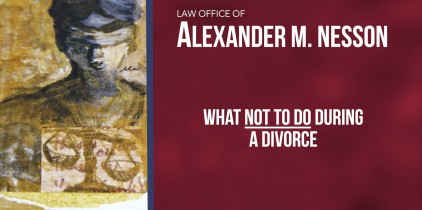What are the Benefits of Mediation?
Over the typical adversarial route:
- Is it takes less time;
- It allows you control over the decisions that affect your life;
- Reduces conflict; particularly raising your children;
- Also avoids some public disclosure of information that you might want to keep private, including financial information;
- It works to help the parties to promote communication and cooperation;
- There are not any limitations by the Court in terms of how much time you have to argue; or time limits;
- The focus is on you and your children and that you are able to resolve it in a way that is right for you and your spouse;
- You can choose things that are less conventional, and have it approved by the Court; and
- It cost a lot less money and it is a lot less time.
What Points are Decided in Mediation?
Each marriage has a variety of different issues, but some of the parenting issues include: legal and physical custody of the children; parenting time; communications and moving a child out of state.
The division of assets and debt can include: your house; bank statements; retirement accounts; investment properties; businesses; pre-marital assets; joint and individual debt; cars and personal property.
Support can include: child support; alimony or spousal support; health insurance; child care expenses and college costs.
Tax considerations that are considered including: the timing; the grounds and a way to avoid future problems after the divorce has gone through.
How Long does Divorce Mediation Take?
Mediation sessions are usually one (1) hour in length. Usually every week or two and it is generally under 10 hours; including the two (2) hours to draft the Separation or Divorce Agreement and other paperwork. There is not a requirement. Sometimes cases take less time and sometimes they take more, but it is significantly less than an adversarial proceeding.
Does the Mediator meet with both Spouses together or Separately?
Different Mediators have their different philosophies. In my office I meet with the parties together. As the mediation goes along, it might end up being a situation where I would meet with both parties separately for a session or a part of the session. Generally, it would be with both parties together.







